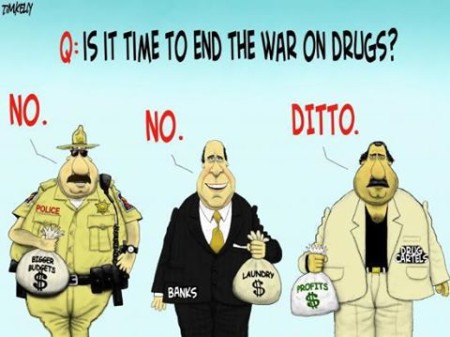The following debate originally took place upon my Facebook wall, after I posted artwork being shared by peace activist, Cindy Sheehan…
Rayn:
Katherine C.: I don’t think it’s Obama…it’s just this country. How did we get out of the Depression?? WWII… It’s the way we do politics and it’s impossible for any president who gets into office to simply say, “ok, we’re shutting down all our army bases all over the world and bringing all our troops back from all over the world just like that”. Not saying I agree with our policies, but it’s also not that easy to undo over 60 years of war behavior.
Rayn: Well, think again, because Obama’s been the ruler of America for almost a decade, now, and has not only escalated all of Bush’s wars, he has continued to expand the U.S. military empire, too!
“It’s official, Obama takes a commanding lead in the countries bombed 7-4! [For]ward Iraq, Afghanistan, Pakistan, Libya, Somalia, Yemen, and Syria”
![“It’s official, Obama takes a commanding lead in the countries bombed 7-4! [For]ward Iraq, Afghanistan, Pakistan, Libya, Somalia, Yemen, and soon Syria” (Artwork originally located here, upon the page, “Free Talk Live")](http://acidrayn.com/wp-content/uploads/2016/11/2016-11-04-Debating-Obamas-Role-in-Continuing-Wars-of-Aggression-and-Crimes-Against-Humanity-at-the-Behest-of-His-Bankster-Overlords-2-450x457.jpg)
“It’s official, Obama takes a commanding lead in the countries bombed 7-4! [For]ward Iraq, Afghanistan, Pakistan, Libya, Somalia, Yemen, and soon Syria”
(Artwork originally located here, upon the page, “Free Talk Live“)
Rayn: Jeb Bush Recommends Obama Give ‘Tip of the Hat’ to Brother on Foreign Policy:
http://thehill.com/video/campaign/231441–jeb-bush-recommends-obama-give-tip-of-the-hat-on-foreign-policy-to-brother-
Rayn: Under Obama, US military bases around the world CONTINUE to increase, without an end in sight…
Imperialism Obama Style: 800 Military Bases Around the World (July 2016 article):
http://www.alternet.org/world/imperialism-obama-style-800-military-bases-around-world
737 U.S. Military Bases = Global Empire (Feb. 2007 article):
http://www.alternet.org/story/47998
Rayn: Interesting you mention the Great Depression, because history has revealed that it was actually engineered by collusion between Banksters, Wall Street, and of course, the strong arm of the government…
The Great American Bubble Machine:
http://www.rollingstone.com/politics/news/the-great-american-bubble-machine-20100405
Rayn: Here’s some of the inconvenient truths set out in the famous book, “Grapes of Wrath”…
“Grapes of Wrath,” Chapter 25, by John Steinback (1939):
http://genius.com/John-steinbeck-grapes-of-wrath-chapter-25-annotated
“The works of the roots of the vines, of the trees, must be destroyed to keep up the price, and this is the saddest, bitterest thing of all. Carloads of oranges dumped on the ground. The people came for miles to take the fruit, but this could not be. How would they buy oranges at twenty cents a dozen if they could drive out and pick them up? And men with hoses squirt kerosene on the oranges, and they are angry at the crime, angry at the people who have come to take the fruit. A million people hungry, needing the fruit—and kerosene sprayed over the golden mountains.
And the smell of rot fills the country.
Burn coffee for fuel in the ships. Burn corn to keep warm, it makes a hot fire. Dump potatoes in the rivers and place guards along the banks to keep the hungry people from fishing them out. Slaughter the pigs and bury them, and let the putrescence drip down into the earth.
There is a crime here that goes beyond denunciation. There is a sorrow here that weeping cannot symbolize. There is a failure here that topples all our success. The fertile earth, the straight tree rows, the sturdy trunks, and the ripe fruit. And children dying of pellagra must die because a profit cannot be taken from an orange. And coroners must fill in the certificate—died of malnutrition—because the food must rot, must be forced to rot.
The people come with nets to fish for potatoes in the river, and the guards hold them back; they come in rattling cars to get the dumped oranges, but the kerosene is sprayed. And they stand still and watch the potatoes float by, listen to the screaming pigs being killed in a ditch and covered with quick-lime, watch the mountains of oranges slop down to a putrefying ooze; and in the eyes of the people there is the failure; and in the eyes of the hungry there is a growing wrath. In the souls of the people the grapes of wrath are filling and growing heavy, growing heavy for the vintage.”
As stated by Wikipedia, “Steinbeck was known to have borrowed from field notes taken during 1938 by Farm Security Administration worker and author Sanora Babb. While Babb collected personal stories about the lives of the displaced migrants for a novel she was developing, her supervisor, Tom Collins, shared her reports with Steinbeck, then working at the San Francisco News.” (Click Here to Continue Reading This Post)












